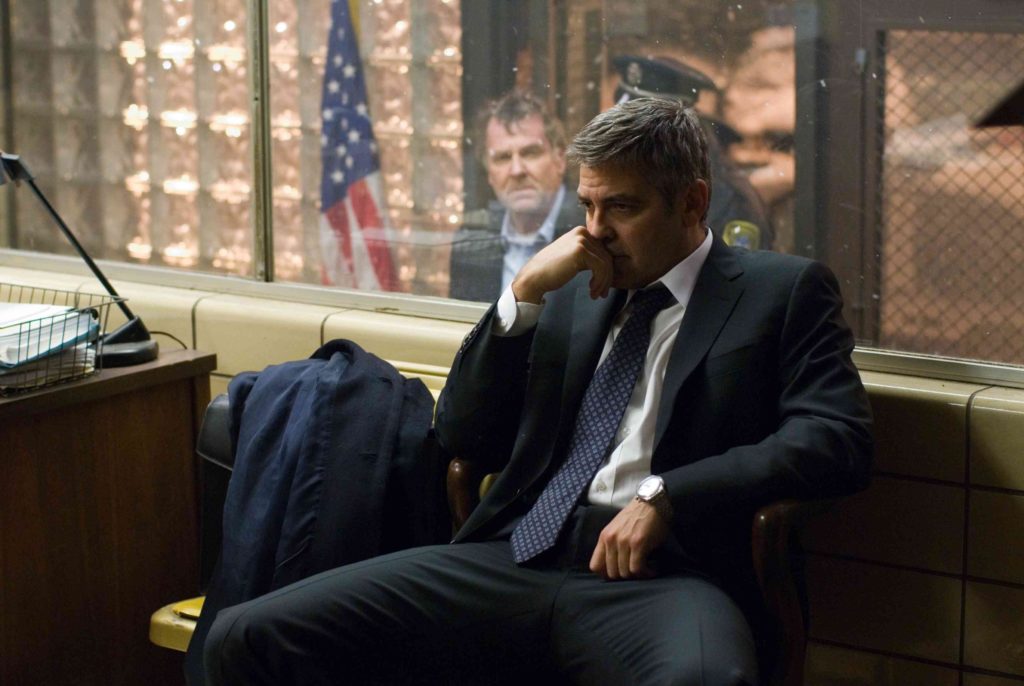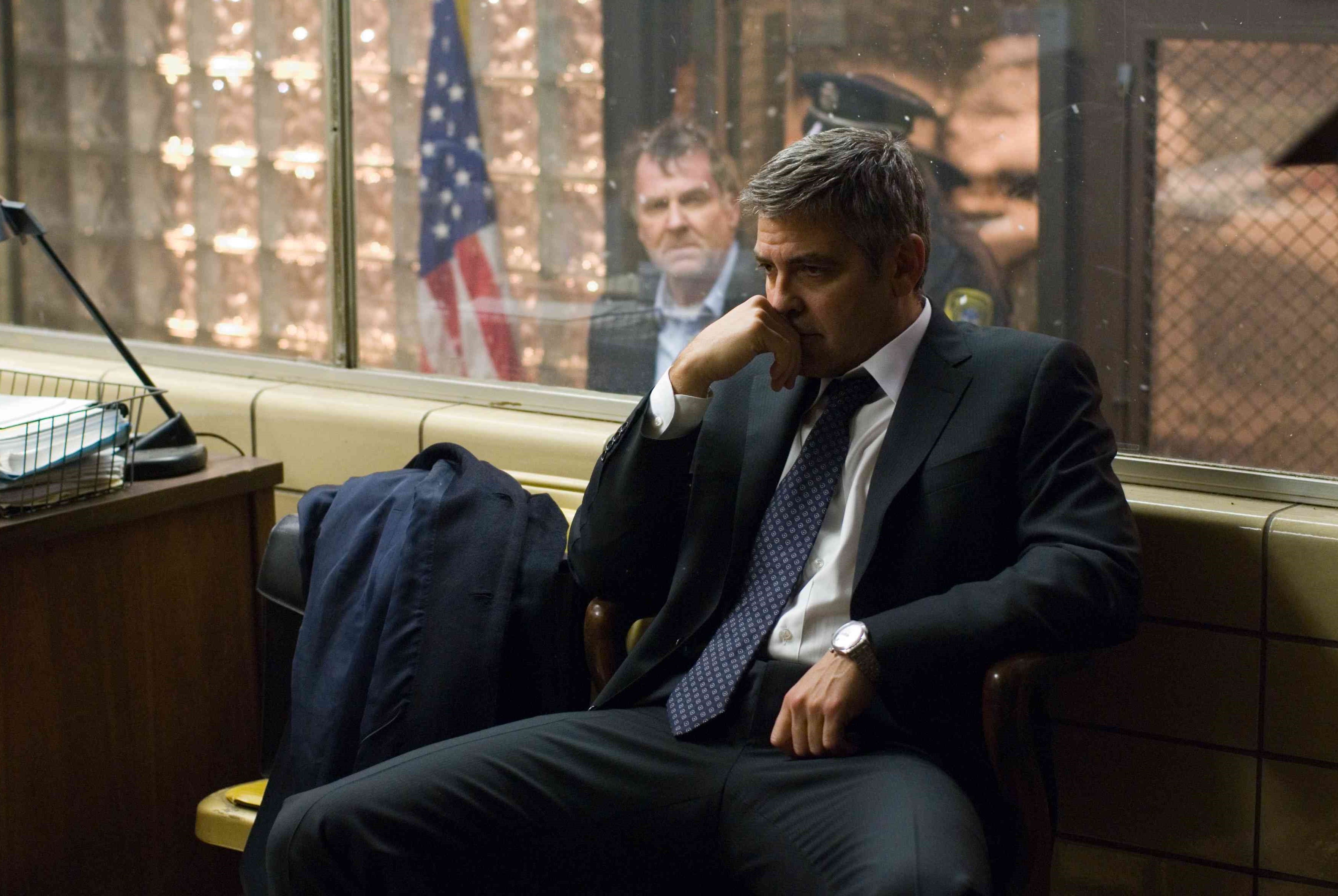Michael Clayton is about a man who’s traded his moral compass for a GPS device fixed on rank and wealth. That emptiness you see in his eyes comes from the thousand-and-one compromises he’s made in his life until he wakes up one evening to a crisis of conscience.

The crisis comes in the form of law partner and friend Arthur Edens who — after a lapse in his medication and six years spent defending a chemical company from a $3-billion class-action suit — arrives at his own epiphany about his work and quickly turns from corporate protector to raving whistleblower: “I have blood on my hands!”
After walking through the mess that has become Arthur’s life, Clayton not only begins to believe the truth of his friend’s story, but the larger truth behind his own life.
“You’ve got all these cops thinking you’re a lawyer,” his brother, a cop, bluntly tells him, “and you’ve got all these lawyers thinking you’re some kind of cop. You’ve got everybody fooled; everybody but you! You know exactly what you are.”
Michael Clayton is a rusted-out shell of a litigator whose “special” skill is in-house damage control; a “fixer” in a high-powered law firm, or as Clayton puts it, a janitor. And he seems resigned to the role in spite of the fact that every other aspect of his life is a mess that he can’t quite clean up. Saddled with $75,000 of debt from a lost restaurant and divorced, Clayton drives his young son around with him on some of his “errands.” While the son knows the father is struggling, he doesn’t suspect what his mother, the ex-wife, has known for sometime: that Clayton was a talented lawyer who sold-out years ago to the kind of prestige whose only allegiance is to the elite client base and bottom line.
In spite of movie star looks and Ocean’s Eleven charm, George Clooney shines brightest when he plays morally complex characters: the morally conflicted CIA agent in Syriana; the morally principled TV producer in Good Night, and Good Luck; and now the morally bankrupt lawyer in Michael Clayton. Each of these characters face a crisis of conscience that forces them to look within themselves to find their integrity.
What makes each of them compelling in their own way are the various shades of ethical relativism that color their lives and ultimately affect their decision making. In Syriana, Bob Barnes must choose between ethics and expediency. In Good Night, and Good Luck, Fred Friendly, with his job on the line, must take a stand to expose a fear-mongering Joe McCarthy. Michael Clayton must choose between toeing the company line or exposing a client with an incriminating memo.
All of us want to do the right thing. All of us want to be the kind of principled individuals our family, friends and colleagues can look up to. However, sometimes we lose our way. What makes Michael Clayton so convincing is that it shows us that even in the bleakest moments of our lives, each of us can find a way back.
Clayton is searching for his own way back, if for no other reason than to be the kind of father and role model his son knows he can be.
Comments
Leave a Comment











Jim, your commentary made me realize that when I recently saw “Michael Clayton,” I wasn’t just watching a good story, I was actually watching a great morality play.